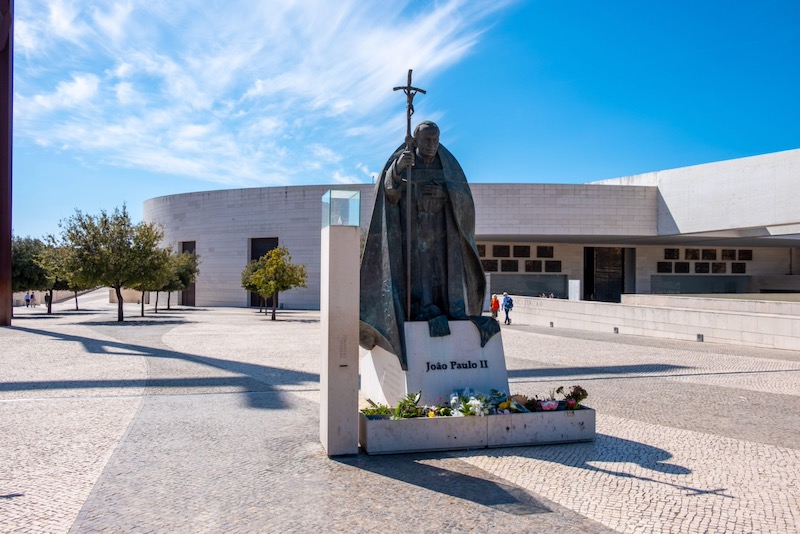Page 402 of a book published in 1850 entitled, Collection of Canons and all the Councils of the Church of Spain and America, has the following text, originally in Latin and translated to Spanish, the tenth Canon of the ninth Council of Toledo, from the year 655.
“Because many decrees of the Fathers were issued up to this time concerning the incontinence of the clerical order, and still were not able to correct their morals, the condemnation of the sins was extended so that the punishment should be incurred not only on the perpetrators of the crime, but also on the offspring of the condemned. Therefore, if anyone from bishop to subdeacon begets a child from a detestable marriage to a slave or a free woman while holding the office, then these children who are proven to have been begotten by them shall be punished by the canonical law. The offspring begotten from such a pollution shall never receive an inheritance from their parents, but, what is more, they shall remain forever in the service of the Church to whose disgrace they have been begotten by its priest or minister.”
The words “vengeance ... brought ... on ... the offspring of the condemned" truly paint a picture of those bishops who gathered in Synod and their intention toward what Pope Paul VI would term “lamentable defection” (and its fruit) in 1964, some 1300 years later. “Vengeance” toward “defectors” and the “offspring of the condemned”. Children of priests and religious were enslaved “by right forever”.
This book, which rests in Madrid, Spain, may well have found its way into the Corpus Iuris Canonici, a source of ecclesiastical legislation. Whether it was formally recognised as a valid source of ecclesiastical legislation or not, this Canon and the attitudes behind it certainly influenced popular culture and attitudes toward children of clergy for centuries, an influence that lives in the form of historic stigma today. This volume of canons which codify that which would become commonplace is important to note, because it highlights an actual practice that was written into church law that would enslave (literally) those known as “the children of the ordained”. Secondly, it relegated children of the ordained to the status of slaves, fostering the perception of children of the ordained and religious, in eras post-slavery, as being slave-like and subject to the whim of clericalist will. Children of the ordained continue today to be recognised as “slaves”, enslaved to the demands of secrecy laden upon them within the domestic, a secret with canonical roots, so as to punish the adult and preserve the norm.
The tenth canon of the ninth Council of Toledo is the visible link between the institutional church, ecclesiastical legislation and stigma toward children of the ordained. Here, stigma was formalised, enacted into law and actual children became slaves. That which was once Canonical would later enter the collective mindset of societies fostering harm toward minors for centuries in numbers untold.
On the 17 October 1987, Pope Saint John Paul II referenced the Council of Toledo in his speech to the Spanish Ambassador Sr. Don Jesús Ezquerra Calvo. Saint John Paul II noted,
“Indeed, within a few years, we will celebrate the 14th centenary of the Council of Toledo. From that Council onwards the Catholic faith began to take deep root among the people of Spain, as an essential part of their spiritual and cultural heritage.” Pope John Paul II, 1987.
The significance of this statement by Pope John Paul II is that he recognised the positive impact of the Council of Toledo in the twentieth century amid Catholics. Thus, he verified and confirmed the indissoluble link between those words written over 1400 years ago and the behaviours, actions and beliefs of Catholics in the twentieth century. This is equally significant as critics are likely to dismiss the Toledo Canon being referenced here as being 'in the past'. If that were the case, then surely the positive fruits of the Council of Toledo would equally be in the past. The late Holy Fathers' comments identify and underline the influence of this Council on Catholics today.
The words written by those Bishops and Archbishops 1400 years ago, continue to impact the minds of children of clergy and religious today. “Incontinence of the clerical order; [...] the punishment incurred [...] should be incurred on the offspring of the condemned; these children [...] shall be punished by Canonical law; the offspring from such a pollution...” The word “pollution” is not that far removed from “lamentable defection” and the antidote to that “pollution”, seemingly, is to punish the child.
Coping International Ltd., has been contacted and used by tens of thousands of people across the world who have suffered harm, harm at the hands of clergy as well as from within the domestic, laity, family and friends who silence the child conceived. Though this harm and the culpability for this harm rests with those who inflict it, the influence of this harm may be traced to Spain, hundreds of years ago (if not before), where quills imbedded themselves into the innocent skin of children born from God, so the sacrifice to that same God, of men and women, may rest easier in the eyes of the laity, who themselves participate in the harming of the children of the ordained.
As this Synod opens, the Synod fathers would do well to remember what previous Synod fathers have written, bringing them to today, for the sake of God and His truth.



 Loading ...
Loading ...
What do you think?
You can post as a subscriber user ...
User comments (0)